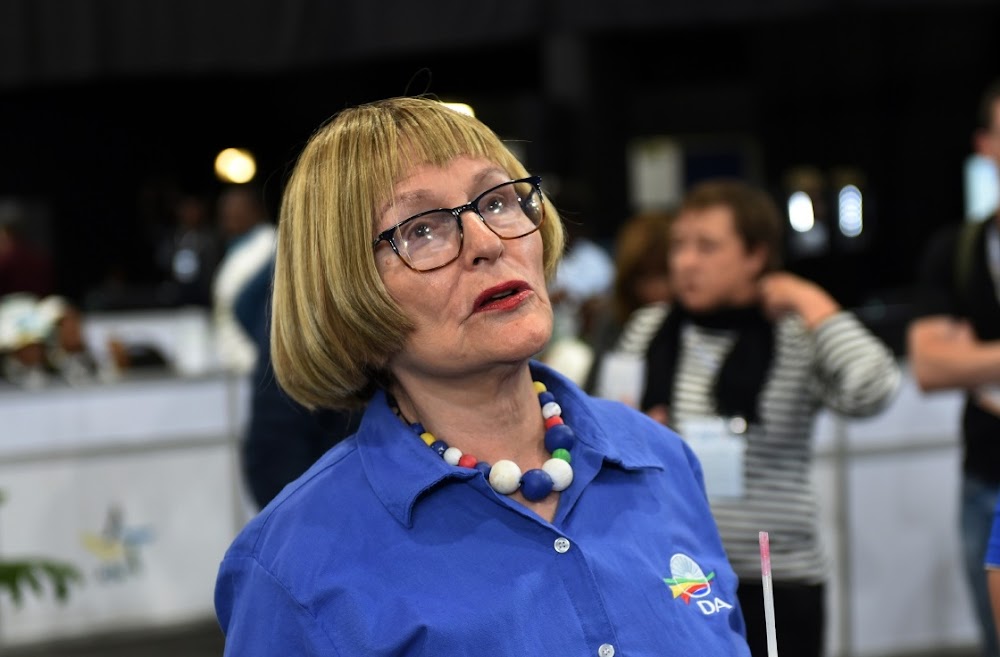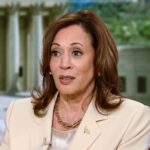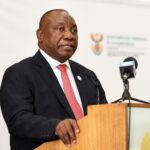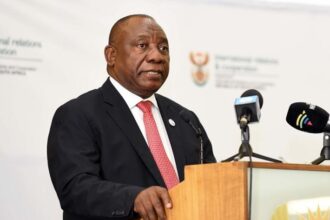In a surprising admission, DA federal chairperson Helen Zille has revealed that the Democratic Alliance (DA) prioritized business interests over the needs of South Africans. Speaking at the South African Chamber of Commerce in the United Kingdom, Zille shared that her party had been advised by the business community to protect President Cyril Ramaphosa from political threats posed by the Economic Freedom Fighters (EFF) and uMkhonto weSizwe (MKP).
Zille’s comments suggest that the DA’s actions were influenced by concerns within the business sector. “We were told to prop up Cyril Ramaphosa and shield him from the EFF and MK,” she stated, generating widespread controversy and fuelling a debate about the DA’s commitment to ordinary citizens. Zille further argued that figures like Julius Malema of the EFF and Jacob Zuma’s MKP would have adverse effects on South Africa’s economic stability, potentially leading major investors to exit the country.
DA and Business Interests Over Politics?
This disclosure follows the May 29 elections, which saw the ANC lose its outright majority and form a coalition government. The DA’s cooperation in a Government of National Unity (GNU) has raised questions from many quarters, with some critics labelling it a “sellout” move that prioritises business interests over the people’s welfare. Many South Africans, particularly black communities, feel this alignment may not serve their needs.
Political analyst Sandile Swana echoed Zille’s sentiment on the role of business but disputed the belief that the EFF and MKP would be damaging to the country’s governance. Swana suggested that large companies were already scaling back their investments in South Africa before the COVID-19 pandemic, mainly under Ramaphosa’s tenure, rather than during Zuma’s presidency. He remarked, “Zuma never made them run away outside SA. They ran away under Cyril Ramaphosa. This idea of creating a phobia around Zuma is wrong.”
Swana pointed out that Business Leadership South Africa (BLSA) had previously issued a statement on May 28, 2024, advising against any partnership with the EFF or MKP. BLSA instead pushed for a coalition between the ANC and the DA, sidelining both the EFF and MKP. According to Swana, the business sector’s opposition to these parties illustrates a significant influence over political decisions in South Africa.
Critics Question DA’s Alignment with Business
Reactions from the ANC and its allies have been critical. The National Education, Health, and Allied Workers’ Union (Nehawu) denounced the GNU arrangement, and Solly Mapaila, general secretary of the South African Communist Party (SACP), expressed disappointment in the DA’s influence within the government. Mapaila suggested that the DA’s involvement reflects a lack of commitment to South Africa’s black communities, saying, “The DA was not for black people and would never develop the black community.”
Zille’s admission at an international forum has reignited discussions about the DA’s true intentions. Swana praised her openness, adding, “Her honesty is commendable and she must be encouraged to continue to do that.”
Calls for Reflection on South Africa’s Future
This unfolding political dynamic has sparked calls for reassessment within South Africa. North-West University’s Dr. John Molepo commented that Zille’s statements shed light on deeper issues within the ANC’s engagement with the GNU. Molepo suggested that the discontent among ANC members with the current coalition underscores the need for national reflection on South Africa’s path forward. “It’s an opportune moment for all of us to go back to the drawing board and discuss the South Africa that we want,” Molepo said.
Attempts to reach the EFF and MKP for comment were unsuccessful at the time of publishing.











